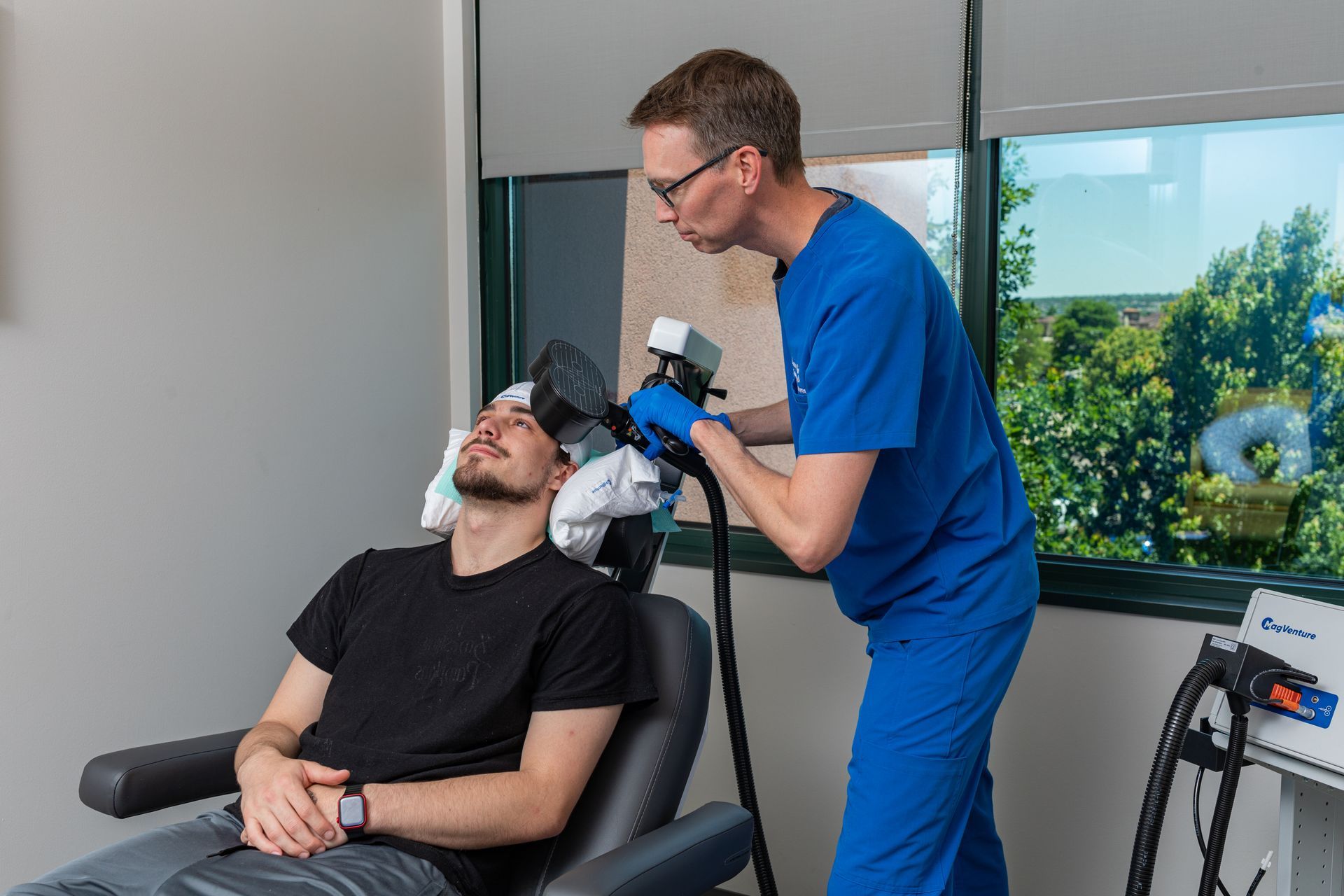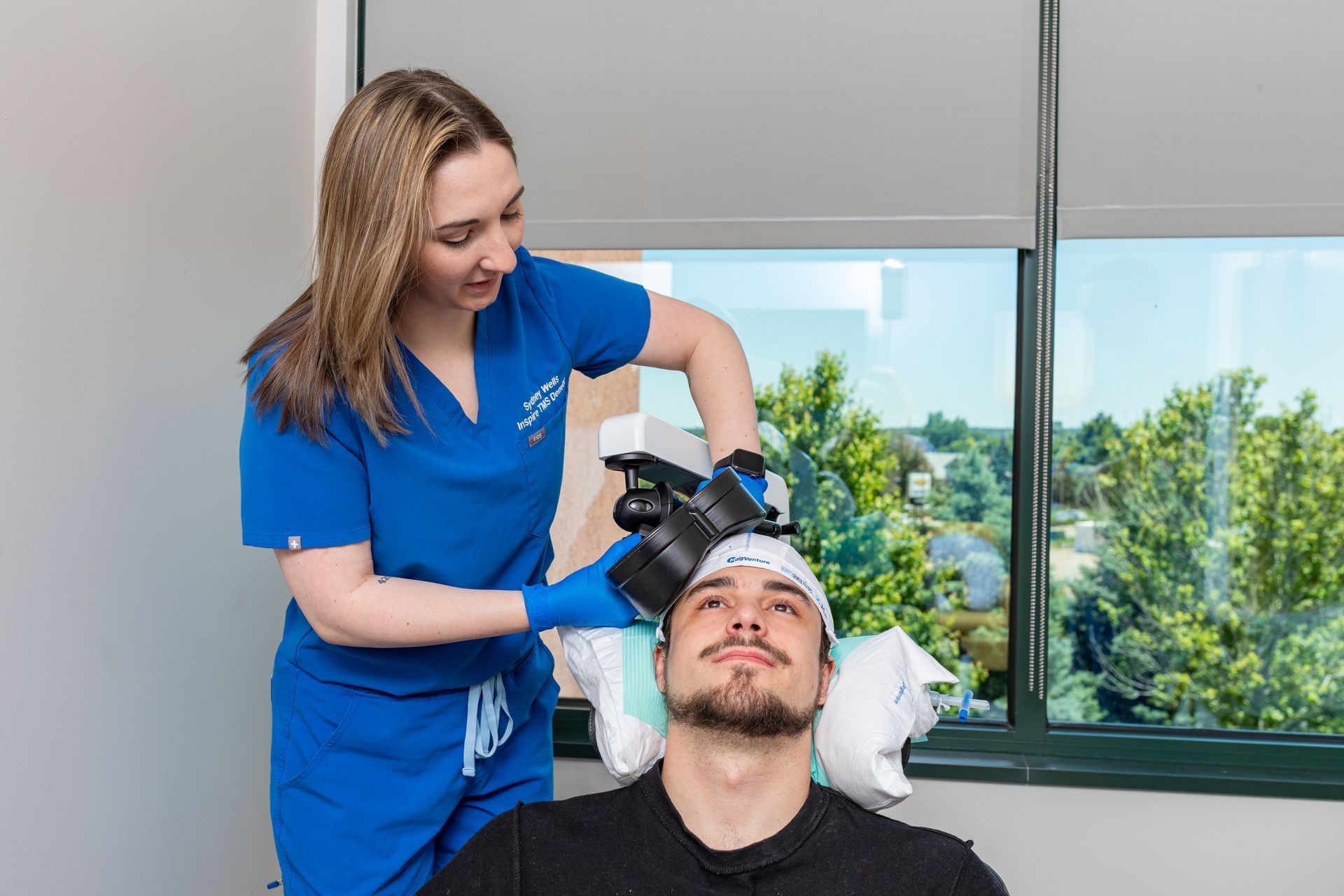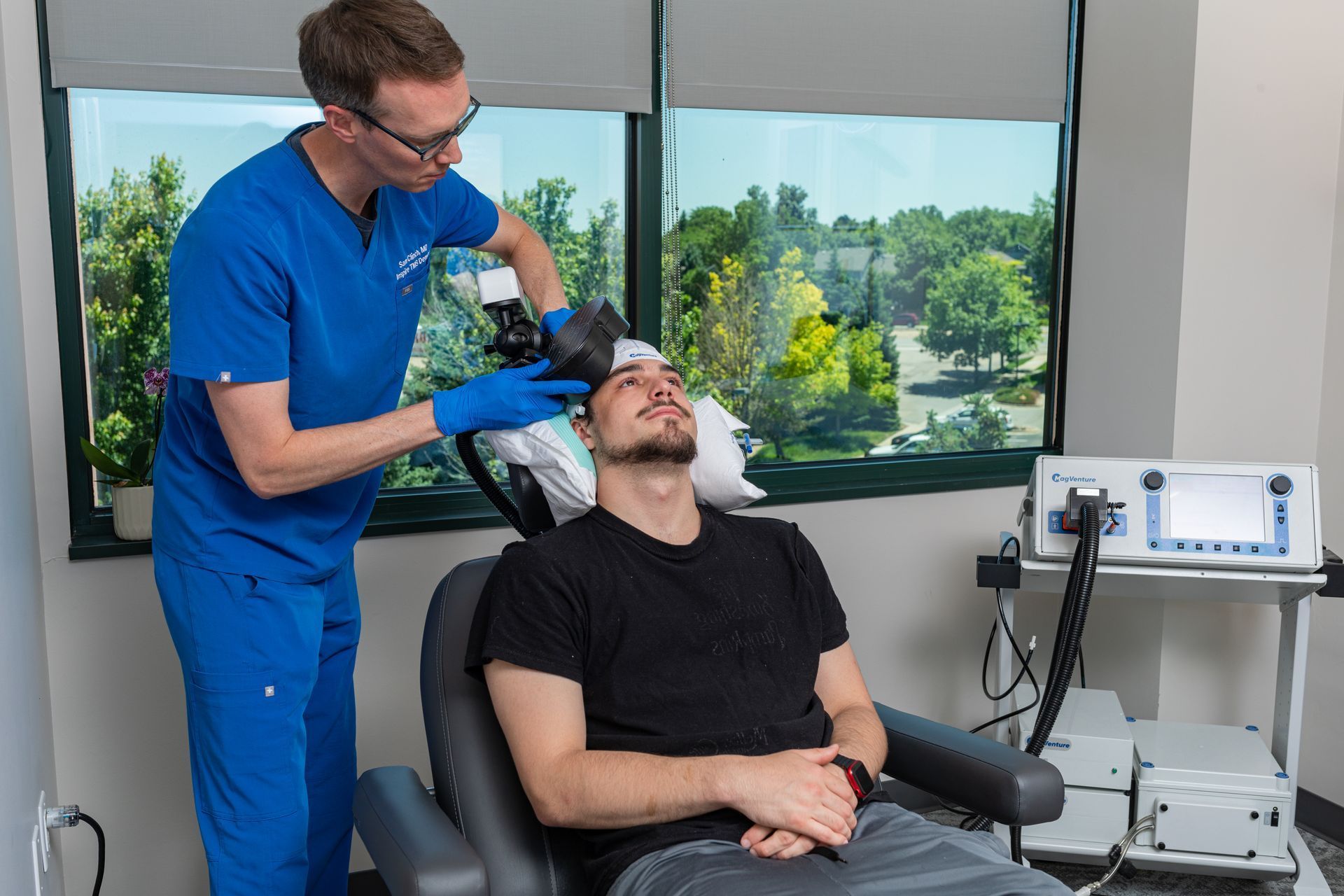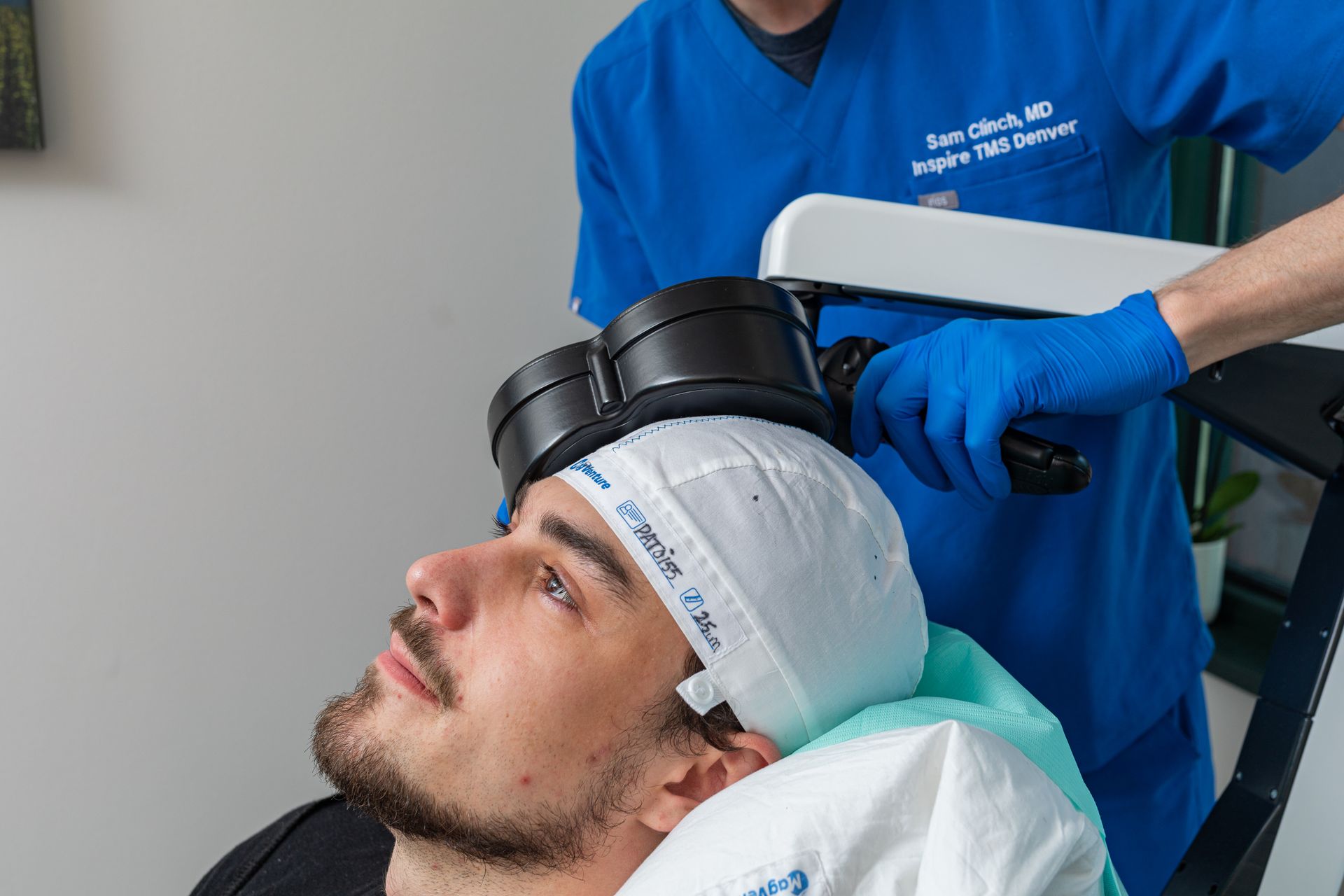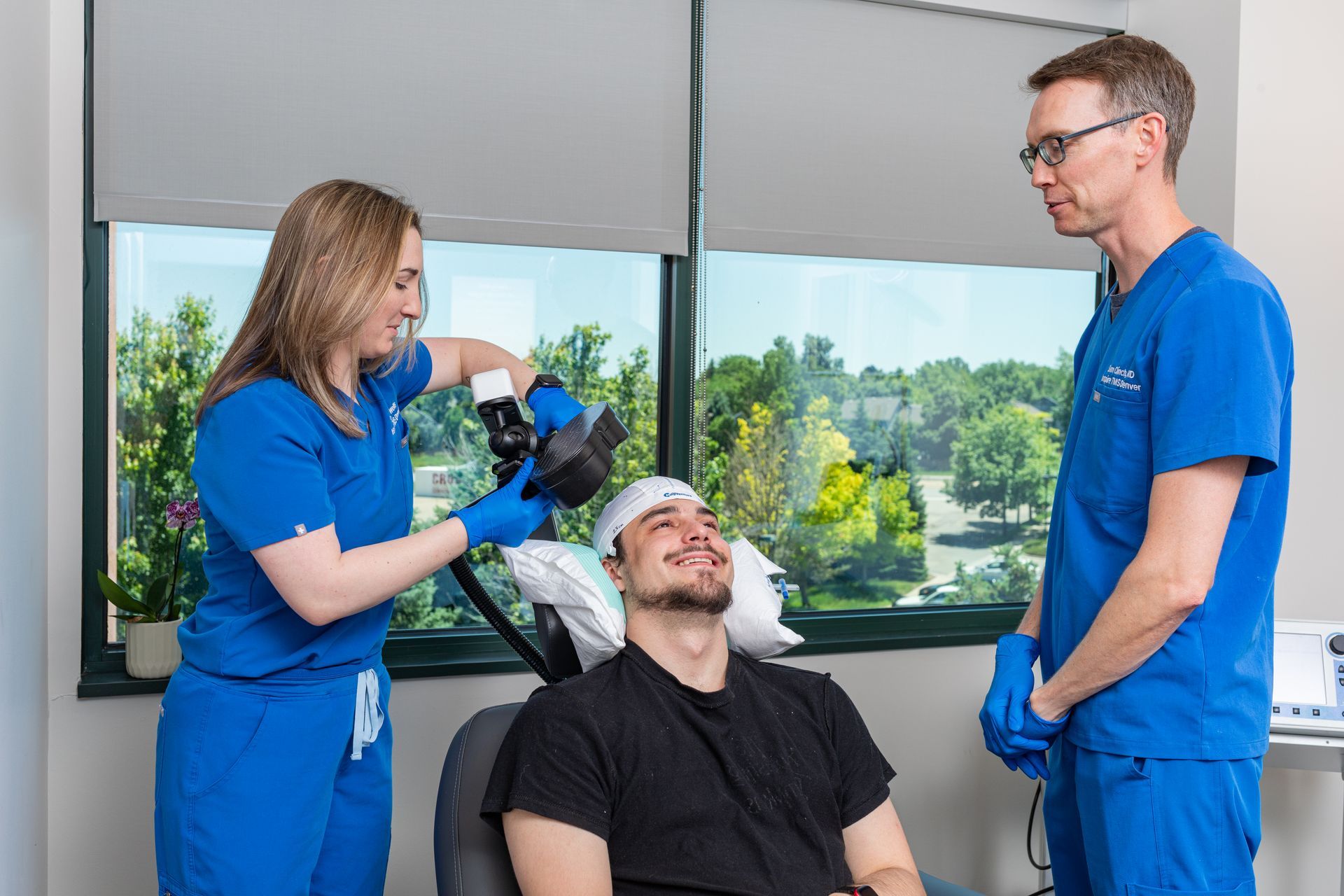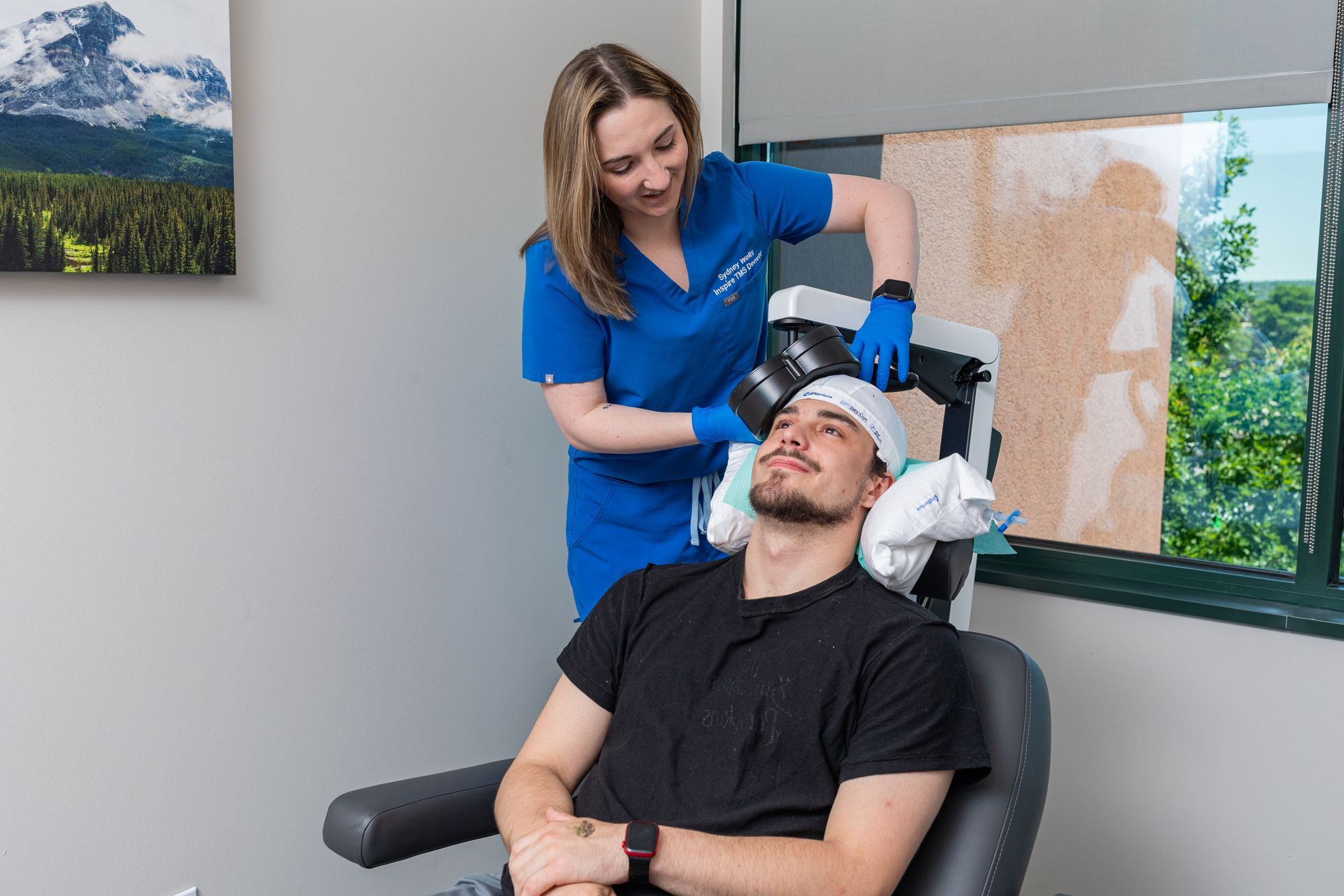Online Post Traumatic Disorder (PTSD) Test

If you have concerns or identify with many of the symptoms of Post Traumatic Stress Disorder (PTSD), it is important to book an appointment with your primary care doctor or a mental health provider. In the meantime, this test is not a diagnostic tool, but a high score may indicate a disposition for PTSD. As this article demonstrates, PTSD is a common mental health disorder. There are treatments available to successfully manage symptoms of PTSD, including
TMS therapy. Take the quiz below to see if PTSD might be present for you.
Do you continually replay past stressful traumatic events in the form of dreams, flashbacks, or as if you are a spectator? Are you triggered by reminders of traumatic events by noises, smells, or similarities in your environment? Does your body react as if to a threat, such as an increased pulse rate, or becoming sweaty?
Do you avoid triggering elements that may remind you of previous trauma, such as certain places, people, or things in your environment. Has this affected your day-to-day life and wellbeing?
Do you feel that you are constantly alert and on guard and that your sleep is detrimentally affected? Does your concentration suffer? Are you very easily irritated, given to angry outbursts, or struggle with depressed mood and frequent anxiety? Or have you uncharacteristically engaged in risky behaviors since the trauma?
What Is Post Traumatic Stress Disorder - PTSD?
We all have an innate, biological fear response which is essential to survival. Ordinarily, the brain processes these responses short term and then ‘dials down’ the response once the threat has ceased. Post Traumatic Stress Disorder, however, is a condition that keeps our brain and bodies in a permanent state of fight, fright, or flight after a threatening event.
This can apply to a single event: for example, a car accident, assault, or a threatening medical event; or it may occur from repetitive stress: such as exposure to military conflict or from chronic emotional, physical, or sexual abuse.
It is important to note that all traumatic events will lead to difficult emotional reactions as we process the experience short term, but this differs from PTSD, which keeps the body in a continuous state of emergency.
Symptoms of Post Traumatic Stress Disorder - PTSD
Post Traumatic Stress Disorder characteristically manifests following a traumatic or life-threatening event, either directly to self, or indirectly, to family and/or friends. It often presents as repeated memories, flashbacks, or nightmares of the event and a change in behaviors to avoid triggers or reminders. Repeated feelings of psychological and physiologic distress occur. PTSD often negatively impacts sleep, appetite, and other bodily functions essential to well-being. Hypervigilance, or the need to be constantly alert to danger, is another common symptom. Sufferers typically experience difficulties with depression, anxiety, and irritability. Symptoms negatively affect day-to-day living significantly.
Diagnosis of PTSD
Have these symptoms continued for over a month? Do many, if not most, of these symptoms chime with your own experience? You may be suffering from PTSD and it is imperative that you seek out a medical professional to evaluate for PTSD.
This constant state of arousal floods your body with hormones such as adrenaline and cortisol. An immediate, short boost to your system of these hormones is not abnormal, but if your body remains in that state, it has an exhausting effect on the mind and the body. This can lead to PTSD symptoms, depression, detachment from family and social groups, and even self harm and suicidal ideation. (In the event of any medical emergency including active suicidal ideation call 911/seek mental health crisis support).
‘About 6 out of every 100 people (or 6% of the U.S. population) will have PTSD at some point in their lives. Many people who have PTSD will recover and no longer meet diagnostic criteria for PTSD after treatment. So, this number counts people who have PTSD at any point in their life, even if their symptoms go away.' -
National Center for PTSD
‘An estimated 3.6% of the world's population has suffered from post-traumatic stress disorder (PTSD) in the previous year, the study showed.’ -
World Health Organization WHO
The crucial message is that you are not alone and that PTSD is treatable.
The perceived threat and dysfunction occurring in the brain can be brought back to a normal state of equilibrium, however. Conventional treatments such as medications and therapy can often be effective in managing the condition, whilst newer, innovative therapies such as
TMS (Transcranial Magnetic Stimulation) are providing even more promising results for those that don’t respond to these interventions.
If you have concerns that you are identifying with symptoms of PTSD, start by discussing your worries with your general practitioner or a mental health specialist. If you are interested in learning more about TMS for PTSD or have not responded to standard interventions, please check out our page detailing this very effective and safe treatment - TMS for PTSD. We have experience and great success treating this condition with TMS at Inspire TMS Denver.
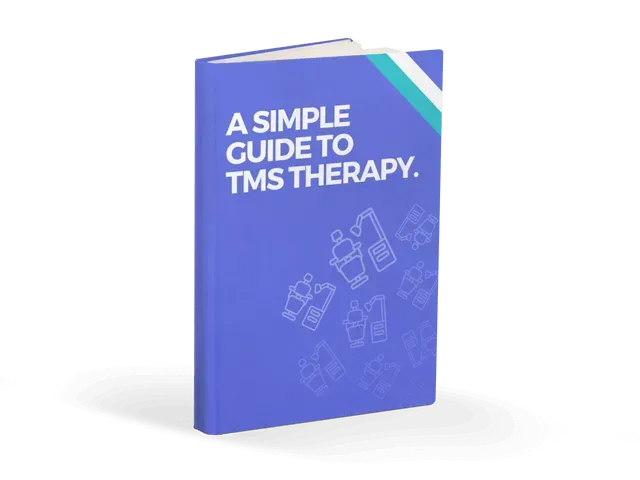
Every Question Answered
Want to know more about TMS? Check out this in-depth guide to TMS therapy with transparent and easy to understand explanations about TMS processes, protocols, and treated conditions.
Latest Posts
